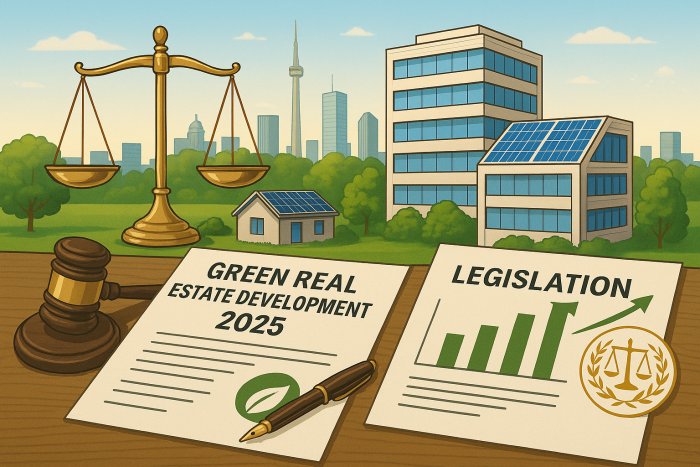ESG, Energy Certification, and Grant Systems – What Does the Law Require and What Should Developers Know?
In 2025, sustainability in the real estate market is no longer a matter of ethics – it’s a regulated requirement. For investors, developers, and operators, green compliance increasingly depends on the correct application of Hungarian laws, particularly those related to energy performance certification, ESG expectations, and public grant frameworks.
1. Energy Performance Certificates – Legal Background and Practical Consequences
In Hungary, the rules governing energy performance certificates (EPCs) are laid out in Government Decree No. 176/2008 (VI.30.). Since late 2024, only buildings with at least a "BB" energy rating (i.e. nearly zero-energy buildings) are eligible for occupancy permits – unless specific exemptions apply in renovation cases.
Key legal requirements:
- Mandatory certificate for all new buildings and for any existing building over 50 m² that is sold or leased.
- Responsibility lies with developers or owners to obtain a valid and registered certificate; failure to comply may lead to sanctions.
- EPCs must be submitted via the National Building Registry (OÉNY) system.
Non-compliance with energy standards can delay construction permits or occupancy approval, resulting in significant financial and timeline risks.
2. ESG Criteria – Not Just a Corporate Matter, but Also a Legal One
As of 2024, the EU’s Corporate Sustainability Reporting Directive (CSRD) is being transposed into Hungarian law. In 2025, medium-sized developers may already be subject to ESG reporting obligations. Even when not legally required, institutional investors increasingly demand ESG-aligned operations.
Legally relevant ESG elements:
- Environmental permitting procedures based on Government Decree No. 314/2005, especially for large-scale or nature-protected area projects.
- Labor and social law compliance (e.g. equal opportunities, fair working conditions), forming the "S" of ESG.
- Transparent operations and ethical procurement – often recommended to be codified in internal compliance policies, especially in publicly funded projects.
3. Green Subsidy Systems – Compliance Is Key to Accessing Funds
In 2025, multiple national and EU funding opportunities are available for green projects, but access requires strict legal compliance and professional documentation. The most relevant programs include:
- GINOP Plus funding for energy efficiency and renewable energy projects (primarily for SMEs).
- REPowerEU grants for renewable energy integration and decarbonization efforts.
- National green finance schemes, such as the Green Home Program (supported by the Hungarian National Bank).
Legal requirements to pay attention to:
- Clear and undisputed property title (no encumbrances or unresolved rights such as usufruct or pre-emption).
- Proper permits and documentation, including building permits or notification filings.
- Public procurement compliance in the case of municipal or state-owned projects.
- ESG-compliant contractor agreements, including clauses on sustainable materials, waste management, and reporting obligations.
4. Legal Risks and Liabilities
The most common legal pitfalls in green real estate include non-compliant energy certification, insufficient grant documentation, and environmental law violations during construction.
Consequences may include:
- Repayment of grants, often with interest and penalties;
- Delayed occupancy permits or regulatory fines, which can exceed HUF 10 million according to Act LXXIV of 2020;
- Legal liability for breach of contract, warranty claims, or failure to meet regulatory obligations.
How Can a Law Firm Help?
Successfully completing a green real estate project today requires more than engineering and financing – it requires legal precision. Our law firm provides:
- Verification of energy and environmental compliance
- Preparation and review of grant application documents
- Assessment of contract terms for ESG alignment
- Risk mitigation and regulatory support throughout the project
If you are planning a green property development and want to avoid legal pitfalls, our office is here to assist you.
We guide our clients from the planning phase to occupancy permits – legally sound and sustainability-focused.




